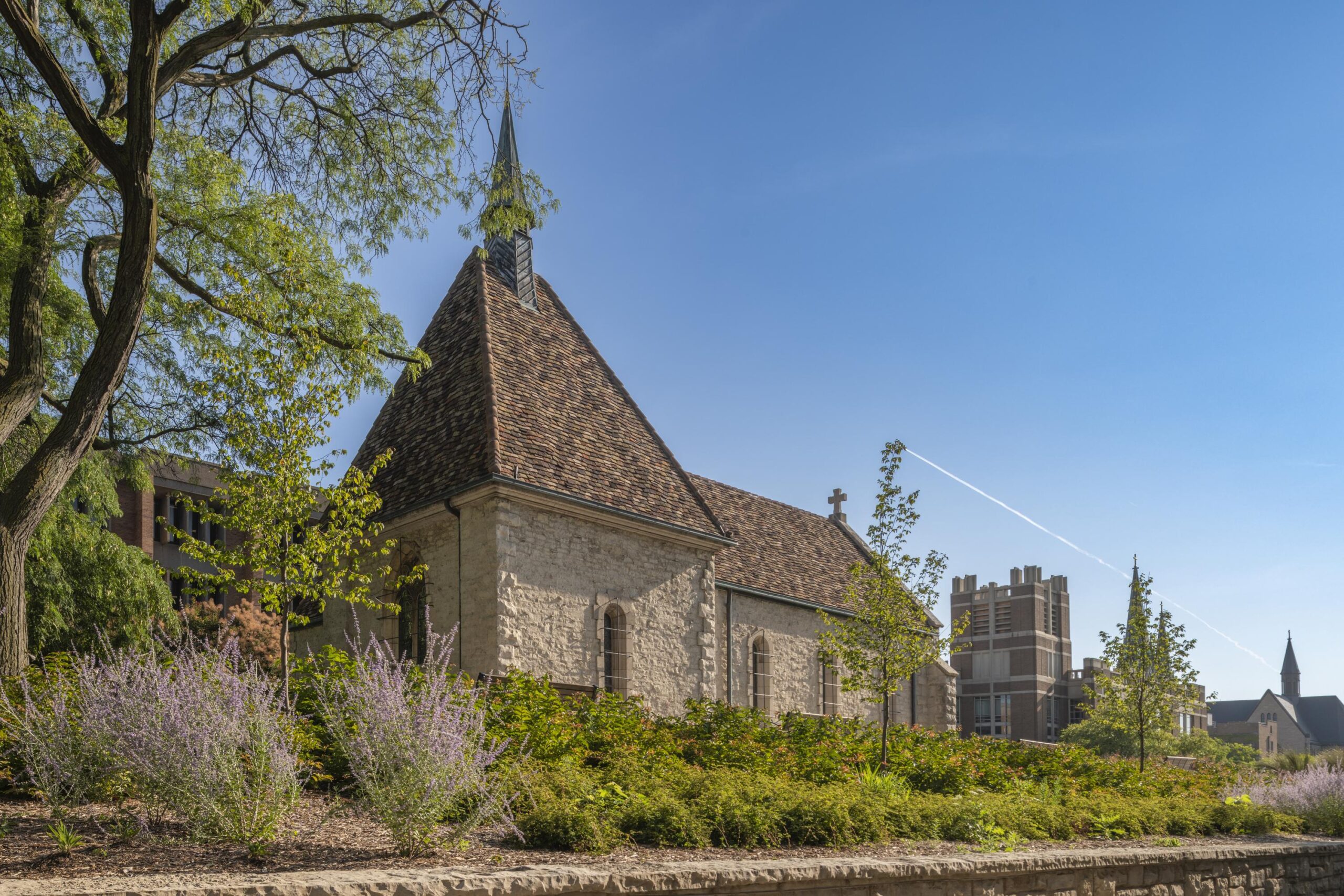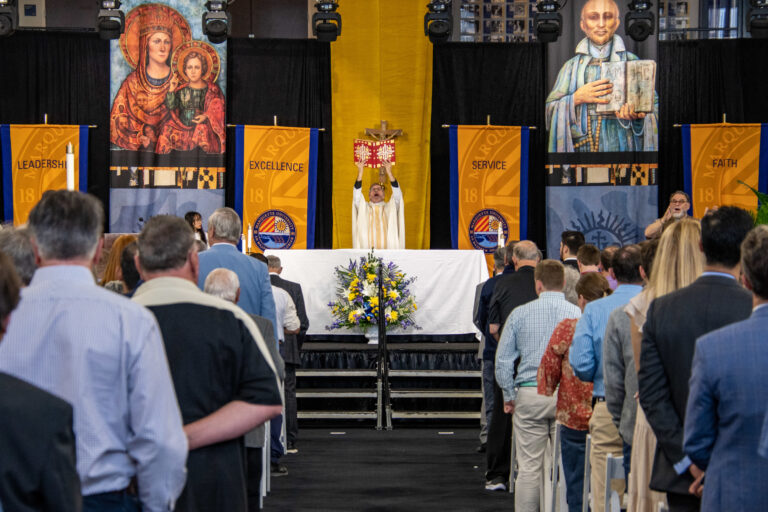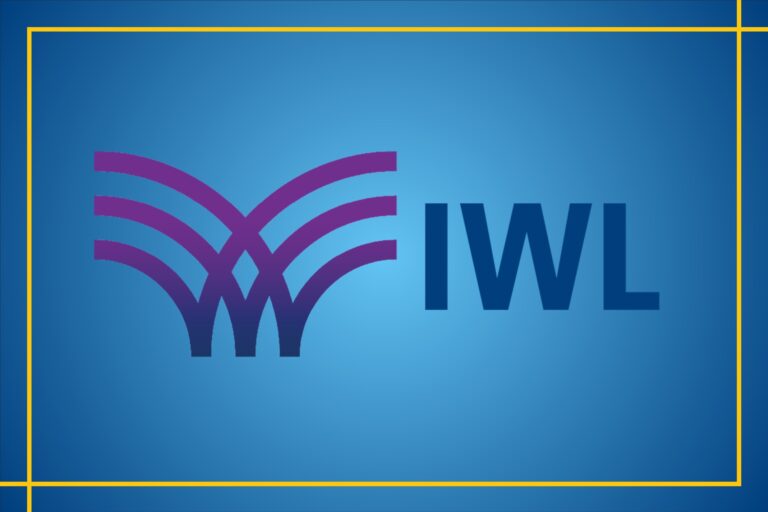The Season of Creation is upon us! And it arrives in the second year of our National Eucharistic Revival. How might these two concerns be addressed in an integral way? Pope Francis points us in a promising direction in his 2015 encyclical Laudato Si’: On Care for Our Common Home.
He does so first by reminding us of the three fundamental and closely intertwined relationships that ground human life: our relationships with God, with one another and with the earth itself (LS, 66). He then takes us a little further along the way toward integration when he points out that care for creation is not an optional or secondary aspect of Christian commitment (LS, 217). Rather, care for creation must be woven into our concern for our neighbors and our praise of God. Ultimately, it is in the Eucharist that this integration is most fully achieved. Through sharing in the Eucharist, we share in the joining of heaven and earth (LS, 236).
This integration can be challenging in our fragmented world. We are often encouraged—even required—to compartmentalize problems: an ecological problem here, a social problem there and a spiritual problem somewhere else. Such fragmentation and compartmentalization can lead us to focus on pollution or climate change or biodiversity loss in ways that cover over or neglect how these ecological challenges are simultaneously social and spiritual challenges. Likewise, we can approach problems such as economic justice or the quality of human life in ways that disregard how in caring for these problems we might negatively affect the natural environment or our spiritual lives.
In addition to living in a fragmented world, we also live in a media-saturated world that regularly and forcefully directs us toward unsustainable and unfulfilling consumer lifestyles. Occasionally, these same media systems might point us toward environmental or social concerns, suggesting that we make a donation to an environmental cause or write a letter to our representatives about a piece of legislation. But in the current cultural environment there is little substantive or sustained concern for our spiritual lives. And our media systems do little to show how all of these concerns might be integrated. There are few, if any, media sites that truly help us to slow down, step back and devote ourselves to the challenging, yet rewarding, work of spiritual growth.
It may well be that spiritual growth must precede truly effective ecological or social change. For our challenge is to live in ways that simultaneously care for all three of the relationships that ground our lives—not as separate or distinct concerns, but as concerns that are intimately interwoven with one another. To do this, we need to learn how to see, judge and act in ways that further God’s plan for humankind and for all of creation. In other words, we must learn to live eucharistically—to lovingly lift up one another and all of creation in thanksgiving to God in all that we do.
Every one of our actions toward the earth—walking or taking public transportation instead of driving a car, eating less or no meat, conserving water and energy, protecting biodiversity—is simultaneously an action toward our neighbors and toward God. Likewise, every one of our actions toward our neighbors—combatting racism and sexism, working for greater inclusion and equity—is an action toward the earth and toward God. And, finally, all of our actions toward God are also actions toward the earth and toward one another. This is most clearly seen in our celebration of the Eucharist—a celebration we are invited to work into our daily lives and into the wider world. This work begins with attending Mass regularly and participating in Communion.
The centrality of the Eucharist in Christian life indicates the role it should play in addressing ecological and social concerns. For the Eucharist points us toward that horizon of all horizons—God—in which these concerns appear and take on their proper weight. When we gather as a community to celebrate the Eucharist, through the consecration of the bread and wine we lift up the fallen world to God as first fruits offered to God from God’s own gift of creation in all and for all. We offer back to God what belongs to God—all of creation.
What does this mean in our everyday struggle for social justice and ecological well-being? It means, first, that God centers our action when we share in Communion. In this centering we find renewed strength and courage to address the challenges of our age (LS, 236). To live a eucharistically centered life is to set out from the God whose life we share through Communion and then to meet with God again in all that we strive to accomplish. God accompanies us in all that we do—thus, God will be with us as we strive to accomplish the theme of this year’s Season of Creation: to let justice and peace flow.
We find this strength and courage to respond to our world’s challenges because through the Eucharist our relationships with God, with others and with the earth are healed or made whole. We ourselves are renewed and changed when we share in Communion. If we are to live in an ecologically sustainable and socially just world, we must live in communion with one another and in communion with God. The Eucharist is this life in communion. There is no other true life in communion beyond or outside of it. Thus, our task is to share in healing the seemingly immense rift between our world’s unfolding ecological crisis and the celebration of the Eucharist.
Despite the enormity of this task, we do not despair because when we share in Communion we are nourished with the faith and hope of salvation. For in the gifts of bread and wine, all of creation has been lifted up, purified and transformed. This means that our healing and the healing of all creation has begun—even if we must await its fulfillment. We come to see that the burgeoning social and ecological catastrophe is not a final judgment upon humanity or upon creation. We are reminded that death and destruction do not have the final word. We are called to live hope-filled lives.
If justice and peace are to flow like a mighty river, we have some choices to make. How will our relations with our neighbors and with the earth reflect our reverence for God’s plan—rather than our own plans—for creation? How will we become less attached to novelty and consumer goods and more committed to healthy ecosystems and just, peaceful relations with one another? How might we live in thanksgiving to
God in every dimension of our lives?
We have the choice to respond to the Season of Creation in a number of different ways. Let’s consider a eucharistically renewed life as essential to the care for creation and the integration of the teachings of Laudato Si’ into our lives, our communities and our world.



